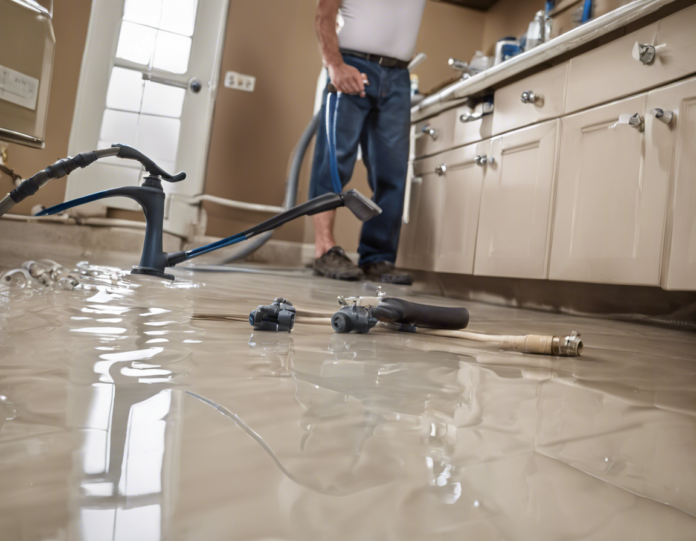Plumbing leaks are a common household issue that can lead to water damage, higher utility bills, and even health hazards if left unchecked. Leak detection is the process of identifying the source of a leak in order to address it promptly. By learning how to detect leaks early, you can save time and money on costly repairs. Here are some tips for plumbing leak detection to help you efficiently locate and fix leaks in your home.
1. Monitor Your Water Meter
One of the simplest ways to detect a leak in your plumbing system is by monitoring your water meter. Start by turning off all water sources in your home and take note of the reading on your water meter. Wait a few hours without using any water and then check the meter again. If the reading has changed, it is likely that you have a leak somewhere in your plumbing system.
2. Check for Water Stains and Mold
Water stains on walls, ceilings, or floors are a clear indication of a plumbing leak. Look for discoloration or warping in these areas, as well as mold growth, which thrives in damp environments. By identifying these visible signs of a leak, you can pinpoint the location of the problem and take steps to repair it.
3. Listen for Unusual Sounds
Sometimes, the sound of running water can help you detect a hidden leak. Turn off all water sources in your home and listen carefully for any dripping or running water. If you hear these sounds coming from a specific area, it is likely that there is a leak nearby. Pay attention to walls, floors, and ceilings where plumbing pipes are located.
4. Conduct a Dye Test
A dye test is a simple yet effective method for detecting leaks in toilets and faucets. Add a few drops of food coloring to the tank of your toilet or to the faucet where the base meets the sink. Wait a few minutes without using the toilet or faucet, and then check to see if the water in the bowl or sink has changed color. If it has, you have a leak that needs to be repaired.
5. Inspect Your Water Bill
If you suspect a leak in your plumbing system but are unable to locate it, inspect your water bill for any unexplained increases in usage. A sudden spike in your water bill without a corresponding increase in water usage is a strong indicator of a hidden leak. By keeping track of your water bills and investigating any anomalies, you can catch leaks early and avoid costly repairs.
In conclusion, plumbing leak detection is crucial for maintaining the integrity of your home and saving money on unnecessary repairs. By following these tips, you can become more proactive in identifying and addressing plumbing leaks before they escalate into major issues. Remember to monitor your water meter, check for water stains and mold, listen for unusual sounds, conduct a dye test, and inspect your water bill regularly to ensure that your plumbing system remains leak-free.
Frequently Asked Questions (FAQs)
1. How do I know if I have a leak in my plumbing system?
– You may have a leak if you notice increased water bills, water stains, mold growth, or unusual sounds of running water in your home.
2. What should I do if I suspect a leak in my plumbing system?
– Start by monitoring your water meter, conducting a dye test, and inspecting your water bill to pinpoint the location of the leak.
3. Can I detect a leak in my plumbing system on my own?
– Yes, with the help of simple techniques such as listening for sounds, checking for stains, and conducting tests, you can often detect leaks on your own.
4. Why is early leak detection important?
– Early leak detection is crucial because it allows you to address the issue promptly, prevent water damage, and save money on repairs.
5. When should I seek professional help for leak detection?
– If you are unable to locate the source of a leak or if you suspect a hidden leak in your plumbing system, it is advisable to seek professional assistance for leak detection and repair.


Recent comments